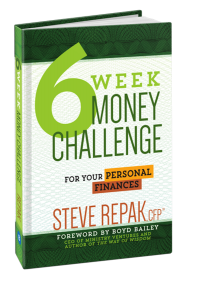The two most popular warehouse clubs in the US are Costco and Sam’s Club. Each membership in the warehouse wholesale club comes with its own unique benefits and this comprehensive guide will help you decide which one is best for your shopping needs.
Which Warehouse Wholesale Club Membership Is Best?
Warehouse Wholesale Club Size and Locations
 In terms of warehouse size, Sam’s Club averages 176,000 square feet per warehouse, while Costco warehouses average 143,800 square feet. Both retailers sell thousands of items online as well. There are 651 Sam’s Club locations in 47 US states and Puerto Rico, though if you’re a Canadian customer then you may want to go with Costco because the only six Canadian Sam’s Club warehouses shut down in 2009.
In terms of warehouse size, Sam’s Club averages 176,000 square feet per warehouse, while Costco warehouses average 143,800 square feet. Both retailers sell thousands of items online as well. There are 651 Sam’s Club locations in 47 US states and Puerto Rico, though if you’re a Canadian customer then you may want to go with Costco because the only six Canadian Sam’s Club warehouses shut down in 2009.
Costco has a wider reach with 689 warehouses spread out across 43 US states and Puerto Rico (481), Mexico (36), Canada (89), the U.K. (27), Spain (2), Taiwan (12), Korea (12), Japan (23), and Australia (8).
Verdict: Sam’s Club seems to be lagging when it comes to location availability. Unless you live in a state without a Costco, your best bet for domestic and international warehouse access is with a Costco membership.
Warehouse Membership Prices
Sam’s Club wins the membership price war with their basic “Sam’s Club Savings” and “Sam’s Club Business” memberships selling for $45 annually. These memberships include buying access to Sam’s Club online and warehouse inventory items, discounts on eyeglasses, instant savings deals, free store pick-up, and potential eligibility for the Sam’s Club MasterCard.
The Sam’s Club Plus membership for $100 per year includes the basic member amenities, as well as cash-back rewards on purchases ($10 for every $500 spent, up to $500 cash-back per year), over 200 generic medications for $4 for a 30-day supply and 400 generic medications for $10 for a 30-day supply (as well as 5 free medications with a prescription), and extra service protection for several non-electronic items purchased through Sam’s Club.
Sam’s Club also offers 1-day shopping passes for non-members to check out their warehouse and website; if you decide to purchase something then there will be a 10% surcharge added to your order.
Although Costco does not offer a 1-day pass to potential members, it still offers low-priced memberships starting at $55 per year for the Business and Gold Star memberships. Unlike Sam’s Club memberships – which charge you extra for additional members added to your card – Costco lets you add one member to your card at no additional cost (it must be a spouse or immediate family member living at the same address as you, however).
Costco’s upgraded memberships, the Executive Business or Executive Gold Star, cost $110 per year and come with added benefits such as free roadside assistance for cars covered through Costco’s auto insurance program, 2% rewards on most Costco purchases, and extra discounts on Costco’s travel services.
Verdict: If membership price is the main factor you’re considering when deciding between Costco or Sam’s Club, Sam’s Club takes the cake with lower annual costs and excellent member benefits at all membership levels.
Read more
 How realistic is the cash only lifestyle? If you are in debt, you have probably heard over and over again that you should quit using credit cards and stick to cash only purchases.
How realistic is the cash only lifestyle? If you are in debt, you have probably heard over and over again that you should quit using credit cards and stick to cash only purchases.



